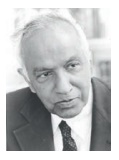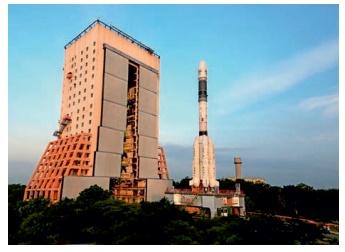Universe and Space | Term 3 Unit 2 | 7th Science - ISRO | 7th Science : Term 3 Unit 2 : Universe and Space
Chapter: 7th Science : Term 3 Unit 2 : Universe and Space
ISRO
ISRO
The
Indian Space Research Organisation (ISRO) is the space agency of the Government
of India headquartered in the city of Bangalore. Its vision is to “harness space
technology for national development while pursuing space science research and
planetary exploration.”
Know your Scientist
Subrahmanyan
Chandrasekhar (19 October 1910 – 21 August 1995) was an Indian
American astrophysicist who spent his professional life in the United States. He was awarded the 1983 Nobel Prize for Physics with
William A Fowler. His mathematical treatment
of stellar evolution yielded many of the best current theoretical models of the later evolutionary stages of massive
stars and black holes. The Chandrasekhar limit is named after him.
Chandrasekhar worked on a wide variety of physical problems in his lifetime.

Formed in 1969, ISRO superseded the
erstwhile Indian National Committee for Space Research (INCOSPAR) established
in 1962 by the Scientist Vikram Sarabhai. The establishment of ISRO thus
institutionalized space activities in India. It is managed by the Department of
Space, which reports to the Prime Minister of India.

ISRO built India’s first satellite,
Aryabhatta, which was launched by the Soviet Union on 19 April 1975. It was
named after the Indian astronomer Aryabhata. In 1980, Rohini became the first
satellite to be placed in orbit by an Indian-made launch vehicle, SLV-3. ISRO
subsequently developed two other rockets: the Polar Satellite Launch Vehicle
(PSLV) for launching satellites into polar orbits and the Geosynchronous
Satellite Launch Vehicle (GSLV) for placing satellites into geostationary
orbits. These rockets have launched numerous communication satellites and earth
observation satellites. Satellite navigation systems like GAGAN and IRNSS have
been deployed. In January 2014, ISRO used an indigenous cryogenic engine in a
GSLV-D5 launch of the GSAT-14.
ISRO sent a lunar orbiter, Chandrayan
-1, on 22 October 2008 and a Mars orbiter, Mars Orbiter Mission, on 5 November
2013, which entered
Mars orbit on 24 September 2014, making India the first nation to succeed on
its first attempt to Mars, and ISRO the fourth space agency in the world as
well as the first space agency in Asia to reach Mars orbit. On 18 June 2016
ISRO set a record with a launch of 20 satellites in a single payload. On 15
February 2017, ISRO launched 104 satellites in a single rocket (PSLV-C37) and
created a world record. ISRO launched its heaviest rocket, Geosynchronous
Satellite Launch Vehicle-Mark III (GSLV-Mk III), on 5 June 2017 and placed a
communications satellite GSAT-19 in orbit. With this launch, ISRO became
capable of launching 4 ton heavy satellites.
ISRO launched Chandran 2 on July 22,
2019, Geosynchronous Satellite Launch Vehicle (GSLV-Mk III). It entered the
Moon’s orbit on August 20, 2019 and its lander landed on the Moon on September
7.
In 1989, Galileo Galilei was memorialized with the launch of a
Jupiter-bound space probe bearing his name. During its 14-year voyage, the
Galileo space probe and its detachable mini-probe, visited Venus, the asteroid
Gaspra, observed the impact of Comet Shoemaker-Levy 9 on Jupiter, Europa,
Callisto, IO, and Amalthea.
In order to avoid the possible contamination of one of Jupiter’s
moons, the Galileo space probe was purposely crashed into Jupiter at the end of
its mission in September 2003.
Related Topics